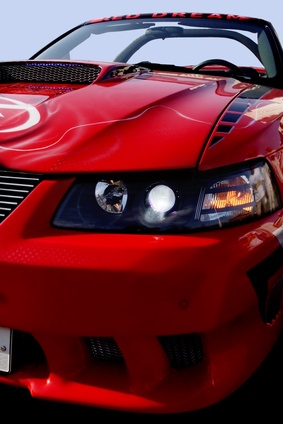
To some automakers and racers, turbo cars represent a good way to achieve high performance. However, while turbochargers give a car more power, they also add weight and cost. There are several turbo alternatives that car designers, manufacturers and enthusiasts can consider when looking to create a more powerful vehicle.
One alternative to turbos is superchargers, which are very similar but have one key difference. Whereas a turbocharger receives power from a car's exhaust, a supercharger gets power directly from the engine. Both components function to force more air into the engine, resulting in more power. But superchargers don't suffer from turbo lag, which occurs during the time it takes for exhaust to move through the system to spin the turbocharger.
Engine tuning is another alternative to turbocharging. Changing the timing of an engine's ignition is a simple modification that a technician can perform quickly and without adding any new parts to the vehicle. This also means no added weight---and, potentially, more power. Engine tuning is especially appealing on race circuits where the use of turbochargers and superchargers is prohibited.
Larger engines represent another simple alternative to turbochargers. They eliminate the problems of turbo lag while adding more weight to the vehicle and lowering fuel efficiency. However, it may be less expensive to purchase a new car with a larger engine than to buy a model with a smaller, lower-output engine and modifying it to accept an aftermarket turbocharger.
Finally, for situations in which a car uses a turbocharger primarily to increase fuel efficiency, a hybrid-electric drivetrain is an alternative. Because they capture power from the exhaust that would otherwise be wasted, turbochargers make an engine produce more power with less fuel. Hybrid-electric drivetrains capture energy that would be wasted during downhill coasting or braking and store it in batteries to power the car later. However, hybrid batteries are very heavy, and the new technology is likely to be much more expensive than a turbocharger.